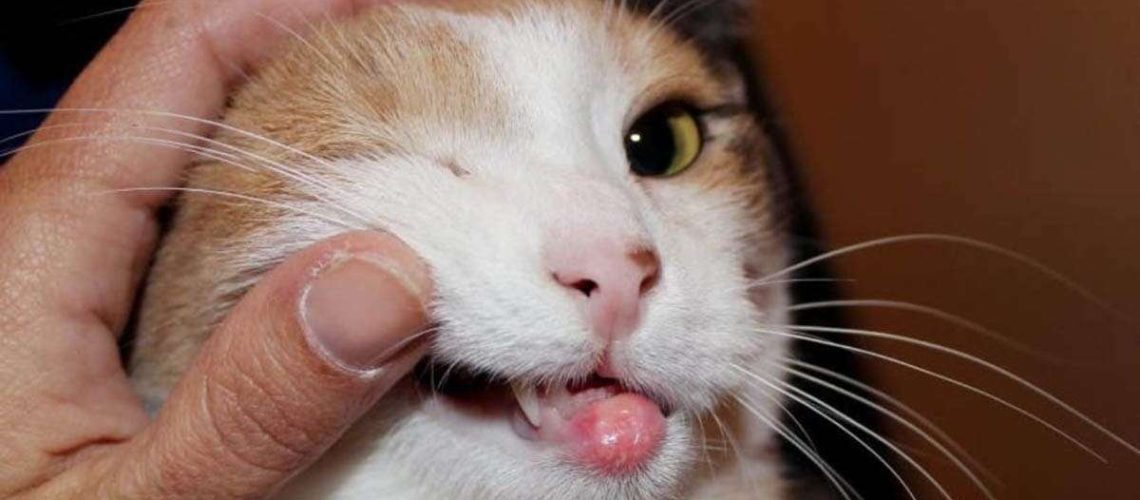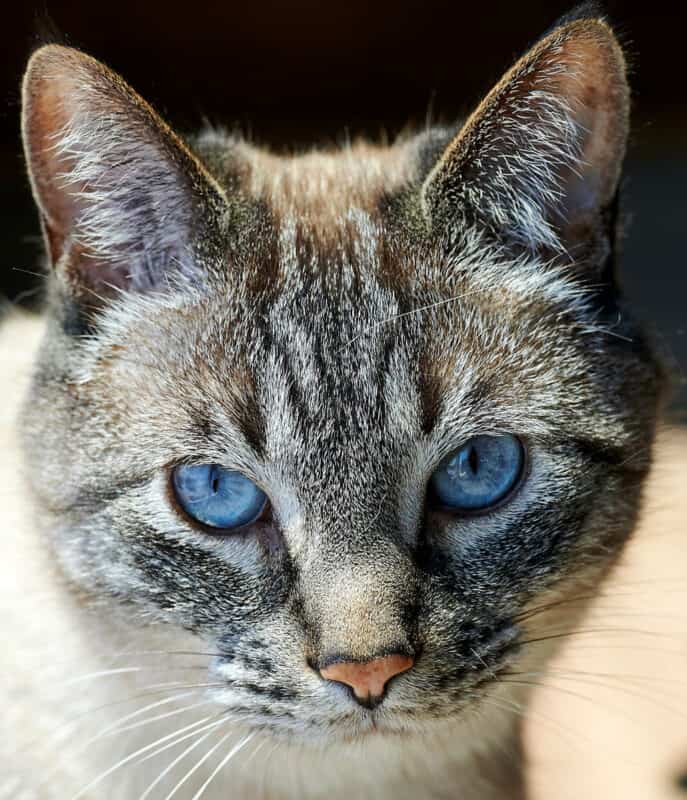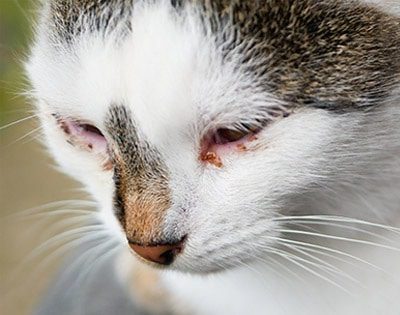Are you a cat lover? Do you want to ensure the health and happiness of your feline friend? Then, brace yourself for an eye-opening journey into the world of rodent ulcers - a battle that often goes unnoticed in cats. By understanding this topic, you will gain invaluable insights into how to protect your furry companion from this silent enemy. Did you know that up to 10% of all cats suffer from rodent ulcers at some point in their lives? That's right! These painful sores can cause immense discomfort and even lead to serious complications if left untreated. But fear not, as we delve into this subject, we will equip you with the knowledge and tools necessary to recognize, prevent, and treat these ulcers effectively. So, join us on this enlightening adventure as we uncover the unseen battle that our beloved cats face every day. Together, let's ensure their well-being and provide them with the care they deserve.
Key Takeaways:
- Rodent ulcers are a common but often overlooked condition in cats.
- These ulcers typically appear on the lips or around the mouth of the cat.
- Causes of rodent ulcers can include allergies, immune system disorders, and trauma.
- Treatment for rodent ulcers may involve identifying and addressing underlying causes, as well as providing topical or oral medications.
- Regular veterinary check-ups and early detection are crucial for managing rodent ulcers effectively.
What is a rodent ulcer and how does it affect cats?
Understanding the basics of rodent ulcers
Rodent ulcers, also known as eosinophilic granulomas, are a common skin condition that can affect cats. Despite their name, these ulcers have nothing to do with rodents. They are called rodent ulcers because they resemble the appearance of a rodent bite or injury.
How do rodent ulcers affect cats?
Rodent ulcers typically appear on a cat's lips, chin, or tongue, but they can also occur in other areas of the body. They usually start as small red bumps and gradually develop into raised, raw sores that may be accompanied by swelling and inflammation. Cats with rodent ulcers may experience discomfort or pain while eating or grooming themselves.
Causes and symptoms of rodent ulcers in cats explained
Possible causes of rodent ulcers
The exact cause of rodent ulcers in cats is not fully understood. However, it is believed to be an immune-mediated condition, meaning that the cat's immune system overreacts to certain triggers. These triggers can include allergies to food or environmental factors such as flea bites or certain substances.
Symptoms to look out for
If your cat has a rodent ulcer, you may notice the following symptoms:
- Redness and swelling on the lips, chin, or tongue
- Formation of raised sores or lesions
- Excessive scratching or licking of affected areas
- Discomfort while eating or grooming
- Hair loss around the affected area
It is important to note that these symptoms can also be indicative of other health issues, so it is best to consult with a veterinarian for an accurate diagnosis.
How to identify if your cat has a rodent ulcer
Observing the appearance of rodent ulcers
To identify if your cat has a rodent ulcer, you can closely examine their lips, chin, and tongue for any abnormalities. Look for redness, swelling, raised sores, or lesions in these areas. If you notice any of these signs, it is advisable to seek veterinary attention for a proper diagnosis.
Seeking veterinary guidance
A veterinarian will perform a thorough examination of your cat's skin and may also conduct additional tests such as skin scrapings or biopsies to confirm the presence of a rodent ulcer. It is essential to consult with a professional to ensure the most appropriate treatment plan for your furry friend.
Home remedies and over-the-counter treatments for cat rodent ulcers
Home remedies for soothing rodent ulcers
While it is crucial to consult with a veterinarian for proper diagnosis and treatment, there are some home remedies that may help soothe your cat's discomfort caused by rodent ulcers. These include:
- Applying cold compresses to reduce swelling
- Feeding soft or moist food to ease eating
- Keeping the affected area clean and free from irritants
Over-the-counter treatments
There are also over-the-counter treatments available that can provide relief from rodent ulcers. These may include topical ointments or sprays specifically formulated for cats' skin conditions. However, it is important to follow the instructions provided by the product manufacturer and consult with a veterinarian before using any over-the-counter treatments.
Remember, while these remedies may offer temporary relief, they do not address the underlying cause of the rodent ulcer. Professional guidance is essential for long-term management.
Professional help to seek if your cat has a rodent ulcer
Consulting with a veterinarian
If you suspect that your cat has a rodent ulcer, it is crucial to seek professional help from a veterinarian. They will be able to accurately diagnose the condition and recommend the most appropriate treatment plan. A veterinarian may prescribe medications such as corticosteroids or antibiotics to reduce inflammation and prevent secondary infections.
Regular follow-up visits
It is important to attend regular follow-up visits with your veterinarian to monitor the progress of your cat's treatment. They can make any necessary adjustments to the treatment plan based on your cat's response and ensure the best possible outcome.
Tips to prevent rodent ulcers in cats
Minimizing potential triggers
While there is no guaranteed way to prevent rodent ulcers in cats, there are some steps you can take to minimize potential triggers:
- Maintain good flea control by using appropriate preventive measures.
- Avoid exposing your cat to known allergens, such as certain foods or environmental substances.
- Provide a balanced diet that meets all of your cat's nutritional needs.
Regular veterinary check-ups
Regular veterinary check-ups are essential for monitoring your cat's overall health and detecting any potential issues early on. Your veterinarian can provide guidance on preventive measures specific to your cat's individual needs.
Real-life examples of cats overcoming rodent ulcers
Celebrating success stories
Many cats have successfully overcome rodent ulcers with proper veterinary care and management. With timely diagnosis, appropriate treatment, and ongoing support from their owners, these furry friends have regained their comfort and quality of life.
A story of resilience
One such example is Max, a tabby cat who developed a severe case of rodent ulcers. His dedicated owner sought veterinary help promptly, and Max underwent a comprehensive treatment plan that included medication, dietary adjustments, and regular check-ups. Over time, Max's rodent ulcers healed, and he is now a happy and healthy cat enjoying his daily adventures.
Remember, every cat is unique, and the success of their journey may vary. With proper care and support, many cats can overcome rodent ulcers and live fulfilling lives.
In conclusion, rodent ulcers are a hidden struggle for cats. They can cause pain and discomfort, but with proper care and treatment, cats can overcome this battle and live happy, healthy lives.
How do you get rid of rodent ulcers in cats?
The wounds will not heal naturally. Your veterinarian may prescribe antibiotics or antifungal medication, along with a brief period of anti-inflammatory steroids.
Why does my cat keep getting rodent ulcers?
Rodent ulcers can be caused by a number of factors, including flea allergy dermatitis, environmental allergic dermatitis (atopy), and food hypersensitivity. While cortisone medication can usually help treat these lesions, they can be completely eliminated if the underlying cause is identified and avoided.
Are rodent ulcers painful for cats?
The majority of the time, the sore on the cat does not seem to bother them, cause any pain, or have any impact on their appetite or behavior. However, it is not visually appealing. The exact cause or causes of these sores are often unknown.
Are rodent ulcers in cats cancerous?
The term "rodent ulcer" is not recommended as it refers to a cancerous tumor in humans, whereas the indolent ulcer in cats is an inflammatory condition. This ulcer typically appears on the underside of the upper lip and is painless, caused by the cat's licking.
What happens if a rodent ulcer goes untreated?
If left untreated, rodent ulcers can cause significant damage to the face and in extremely rare cases, can be fatal. However, they do not typically spread to other parts of the body.
Can you treat a rodent ulcer at home?
I bought the pet treats from a specialty store that focuses on natural products, and I obtained the affordable colloidal silver from a health food store. Furthermore, I treated Murphy's rodent ulcer sores by periodically spraying them with colloidal silver that I poured into a small spray bottle.

















